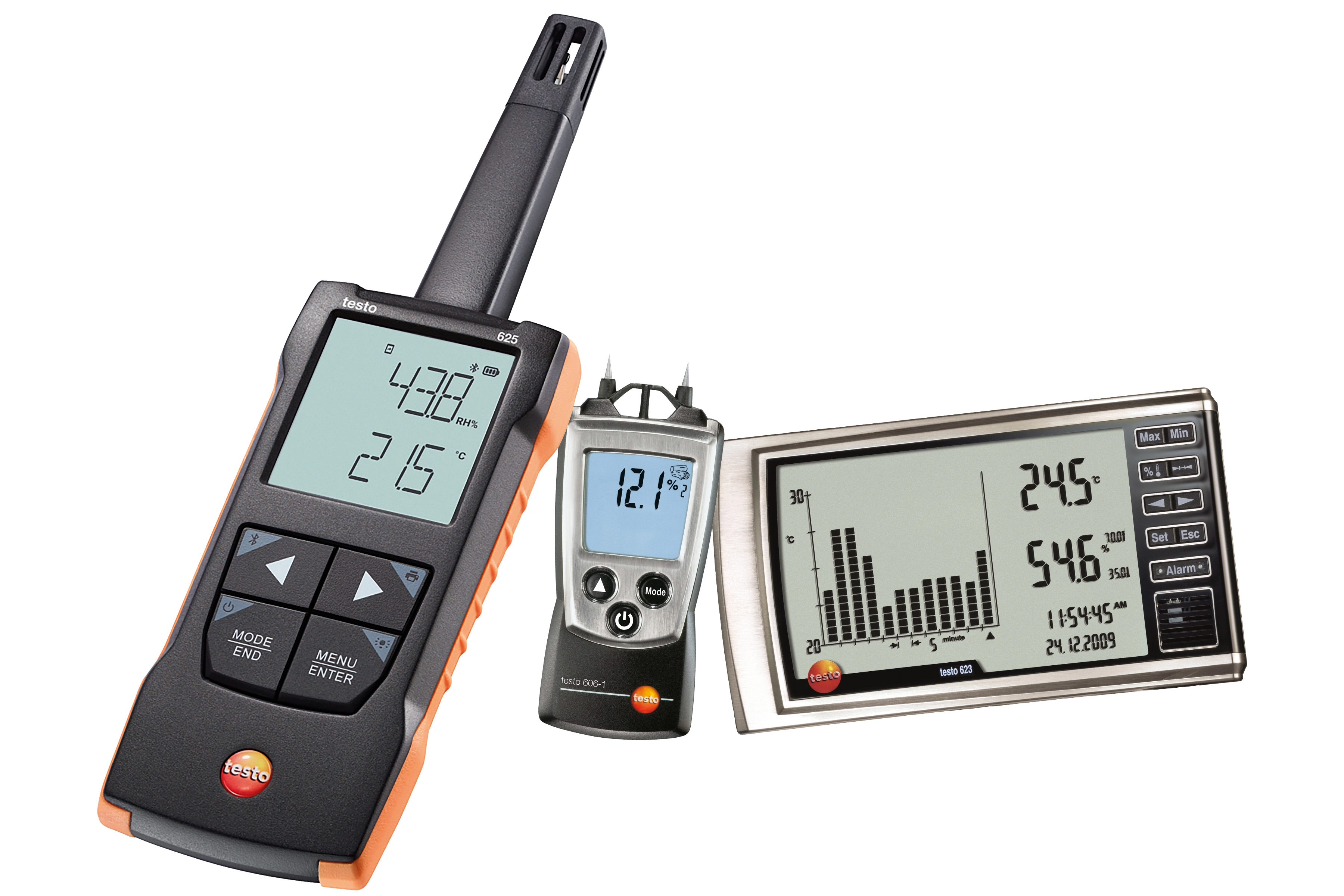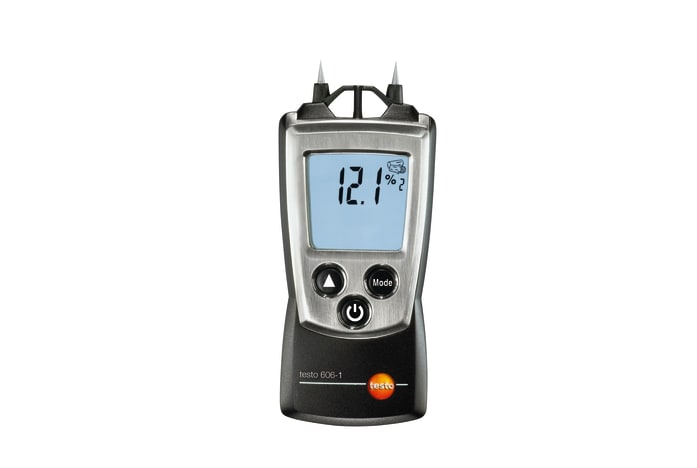Understanding the Various Sorts Of Moisture Meters and Their Applications
Wiki Article
The Ultimate Overview to Moisture Meters: A Comprehensive Overview and How They Can Save You Money
In the world of structure upkeep, construction, and different markets, the value of accurately gauging moisture degrees can not be overemphasized. Wetness meters work as essential devices in spotting and keeping an eye on moisture material in materials, assisting in protecting against expensive damages and guaranteeing the high quality of items. Comprehending the nuances of different kinds of dampness meters, their applications, and the potential cost-saving benefits they supply can be a game-changer for organizations and specialists alike. Finding exactly how these devices can not only simplify processes yet likewise add to monetary cost savings is a journey worth beginning on.Types of Moisture Meters
One typical type is the pin-type wetness meter, which determines the electric resistance in between two pins inserted right into a material. Pinless wetness meters, on the other hand, usage electro-magnetic sensing unit plates to check a larger location without causing damage to the product's surface.Infrared dampness meters measure the thermal residential properties of a material to establish its wetness material non-invasively, making them helpful for applications where pin or pinless meters may not be suitable. Understanding the various kinds of wetness meters available can help sectors pick the most proper tool for their specific dampness dimension requirements.

Benefits of Using Moisture Meters

Furthermore, making use of wetness meters can lead to increased power effectiveness. In farming setups, dampness meters play an essential role in optimizing plant returns by allowing farmers to keep track of soil moisture degrees and make notified irrigation choices.
Just How to Select the Right Moisture Meter
Choosing the suitable dampness meter entails thinking about key factors such as product compatibility, measurement range, and calibration precision. When selecting a moisture meter, it's vital to make certain that the meter is ideal for the certain material you will certainly be screening. Different products have differing electrical buildings that can influence moisture readings, so selecting a meter made for your material is crucial for exact results. In addition, think about the dimension variety of the find out here moisture meter. Make certain that the meter can discover moisture levels within the array required for your applications. Calibration over here precision is another critical aspect to bear in mind (Moisture Meter). Go with a dampness meter with trusted calibration to guarantee specific and constant analyses. Some meters might require regular calibration adjustments, so recognizing the calibration process is essential. By thoroughly reviewing these elements, you can pick a moisture meter that satisfies your demands and provides precise moisture measurements for your jobs.Correct Techniques for Moisture Meter Usage
To ensure exact wetness readings and make the most of the effectiveness of a dampness meter, employing correct methods is important. When making use of a pin-type wetness meter, put the pins or probes right into the product being tested till they make full call. By following these correct methods, customers can depend on their dampness meter to offer reliable moisture degrees, aiding in protecting against costly damages or ensuring top quality in various applications.
Price Cost Savings Through Moisture Meter Applications
Exactly how can the critical usage of moisture meters lead to substantial cost financial savings across different sectors? In the farming industry, wetness meters help in figuring out the optimal time for harvesting crops, avoiding over-drying or excess dampness that can influence the last product's quality.

Furthermore, in the food processing sector, moisture meters are essential for keeping an eye on item high quality and making certain compliance with safety regulations. By precisely gauging moisture web content in foodstuff, suppliers can prevent putridity, maintain freshness, and reduce waste, resulting in significant expense savings. In general, the tactical application of dampness meters is a valuable investment that can cause considerable cost reductions and improved performance throughout various industries.
Final Thought
Finally, wetness meters are valuable tools for measuring and identifying wetness levels in numerous materials. By utilizing the appropriate moisture meter and adhering to proper strategies, users can efficiently protect against costly damages brought on by excess moisture. Buying a high quality moisture meter can result in considerable cost savings over time by recognizing potential concerns early on and enabling timely removal. Inevitably, dampness meters are crucial tools for keeping the stability and long life of products and frameworks.Dampness meters offer as vital tools in spotting and keeping track of moisture web content in products, aiding in preventing costly problems and ensuring the top quality of products. Infrared moisture meters measure the thermal homes of a material to establish its dampness material non-invasively, making them helpful for applications where pin or pinless meters might not be ideal.Dampness meters offer important advantages in precisely analyzing and monitoring moisture levels in diverse products and environments. In farming setups, dampness meters play a critical duty in maximizing plant returns by allowing farmers to keep an eye on dirt wetness levels and make informed irrigation choices.In verdict, dampness meters are beneficial devices for finding and gauging wetness levels in various products.
Report this wiki page